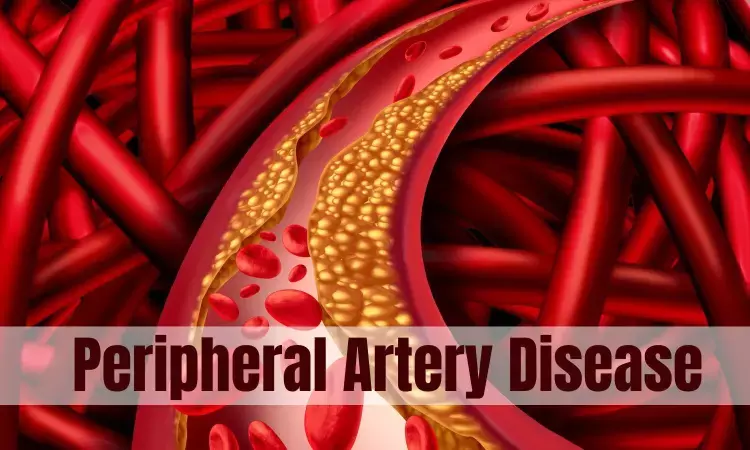- Home
- Medical news & Guidelines
- Anesthesiology
- Cardiology and CTVS
- Critical Care
- Dentistry
- Dermatology
- Diabetes and Endocrinology
- ENT
- Gastroenterology
- Medicine
- Nephrology
- Neurology
- Obstretics-Gynaecology
- Oncology
- Ophthalmology
- Orthopaedics
- Pediatrics-Neonatology
- Psychiatry
- Pulmonology
- Radiology
- Surgery
- Urology
- Laboratory Medicine
- Diet
- Nursing
- Paramedical
- Physiotherapy
- Health news
- Fact Check
- Bone Health Fact Check
- Brain Health Fact Check
- Cancer Related Fact Check
- Child Care Fact Check
- Dental and oral health fact check
- Diabetes and metabolic health fact check
- Diet and Nutrition Fact Check
- Eye and ENT Care Fact Check
- Fitness fact check
- Gut health fact check
- Heart health fact check
- Kidney health fact check
- Medical education fact check
- Men's health fact check
- Respiratory fact check
- Skin and hair care fact check
- Vaccine and Immunization fact check
- Women's health fact check
- AYUSH
- State News
- Andaman and Nicobar Islands
- Andhra Pradesh
- Arunachal Pradesh
- Assam
- Bihar
- Chandigarh
- Chattisgarh
- Dadra and Nagar Haveli
- Daman and Diu
- Delhi
- Goa
- Gujarat
- Haryana
- Himachal Pradesh
- Jammu & Kashmir
- Jharkhand
- Karnataka
- Kerala
- Ladakh
- Lakshadweep
- Madhya Pradesh
- Maharashtra
- Manipur
- Meghalaya
- Mizoram
- Nagaland
- Odisha
- Puducherry
- Punjab
- Rajasthan
- Sikkim
- Tamil Nadu
- Telangana
- Tripura
- Uttar Pradesh
- Uttrakhand
- West Bengal
- Medical Education
- Industry
Nicotinamide riboside may improve walking for peripheral artery disease patients., finds study

The over-the-counter supplement nicotinamide riboside, a form of vitamin B3, increased the walking endurance of patients with peripheral artery disease, a chronic leg condition for which there are few effective treatments.
In a preliminary, randomized, double-blind clinical trial led by Northwestern University and University of Florida scientists, patients who took nicotinamide riboside daily for six months increased their timed walking distance by more than 57 feet, compared to participants who took a placebo. As expected, walking speed declined in those who took a placebo, because peripheral artery disease causes progressive declines in walking performance.
“This is a signal that nicotinamide riboside could help these patients,” said Christiaan Leeuwenburgh, Ph.D., a UF professor of physiology and aging and senior author of the clinical trial report. “We are hoping to conduct a larger follow-up trial to verify our findings.”
Leeuwenburgh, whose research specializes in anti-aging treatments, collaborated with Mary M. McDermott, M.D., a physician and professor of medicine at Northwestern University and an expert in peripheral artery disease. With a large team of collaborators, Leeuwenburgh and McDermott published their findings in the journal Nature Communications
The scientists recruited 90 people with an average age of 71 who had peripheral artery disease, or PAD, to test the effects of nicotinamide riboside. The supplement is increasingly popular as an anti-aging treatment-sales exceeded $60 million in 2022 in the U.S. alone-but there has been scant evidence of any benefit in healthy people. Nicotinamide riboside is a precursor for the essential compound NAD, which plays roles in the body related to energy generation, improved blood flow and DNA repair.
Because PAD is associated with problems generating energy within muscle cells, McDermott and Leeuwenburgh thought that nicotinamide riboside, by improving energy generation, could help improve walking in people with the disease.
And indeed that’s what they found. Participants taking the supplement walked an average of 23 feet more in a six-minute walking test after six months, while those taking a placebo walked 34 feet less. Those who took at least 75% of the pills they were supposed to take performed even better, adding more than 100 feet to their walking distance, compared to people who took a placebo.
(The researchers also tested if resveratrol, a compound best known for being in red wine, could boost the effects of nicotinamide riboside; they found no additional benefits.)
PAD affects more than 8.5 million Americans over the age of 40. Caused by the buildup of fatty deposits in arteries, and associated with diabetes and smoking, the disease reduces blood flow to the limbs, especially the legs. Walking often becomes painful, and the disease typically causes declines in walking ability over time. Supervised walking exercise is first line therapy for PAD, but most people with the condition do not have access to supervised exercise.
In addition to a larger trial focused on patients suffering from PAD, Leeuwenburgh hopes to test the effects of nicotinamide riboside on walking performance in healthy older adults.
“We need to test it on a healthy older population before we recommend healthy people take it,” he said.
Reference:
McDermott, M.M., Martens, C.R., Domanchuk, K.J. et al. Nicotinamide riboside for peripheral artery disease: the NICE randomized clinical trial. Nat Commun 15, 5046 (2024). https://doi.org/10.1038/s41467-024-49092-5.
Dr Kamal Kant Kohli-MBBS, DTCD- a chest specialist with more than 30 years of practice and a flair for writing clinical articles, Dr Kamal Kant Kohli joined Medical Dialogues as a Chief Editor of Medical News. Besides writing articles, as an editor, he proofreads and verifies all the medical content published on Medical Dialogues including those coming from journals, studies,medical conferences,guidelines etc. Email: drkohli@medicaldialogues.in. Contact no. 011-43720751


